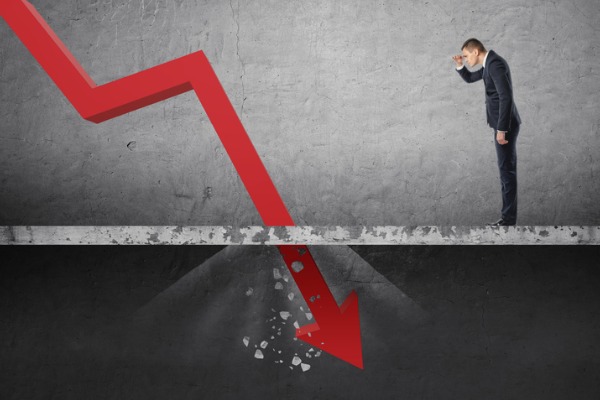The funds, investment trusts and ETFs with exposure to Russia
25th February 2022 11:26
by Kyle Caldwell from interactive investor
Following the invasion of Ukraine, funds, trusts and ETFs with exposure to Russia have come under the cosh. Here are some of the biggest losers and those most at risk.

Global stock markets sold off heavily after Russia launched a major military assault on Ukraine.
Funds and investment trusts with exposure to Russia have come under the cosh the most, particularly the small number that exclusively invest in the region. This includes JPM Russia, Liontrust Russia, HSBC GIF Russia Equity, Pictet-Russian Equities and JPMorgan Russian Securities (LSE:JRS).
Over the past three months (prior to the market open yesterday) each fund was down around 25%. Such losses will now be larger, given Russian stocks fell heavily in yesterday’s session.
The biggest holding in JPM Russia and Liontrust Russia is gas giant Gazprom, accounting for 9.7% and 9.5% respectively.
Exchange-traded funds (ETFs) are down a similar amount over three months. ETFs tracking the up and down fortunes of the Russian market include HSBC MSCI Russia Capped ETF (LSE:HRUB) and iShares MSCI Russia ETF (LSE:CRU1).
Among investment trusts, JPMorgan Russian Securities is the only trust that invests solely in the region. The trust had 20.5% of its assets in Gazprom at the end of January. Following Russia’s invasion there is likely to be greater interest in its annual general meeting, which is scheduled to take place on Friday 4 March.
- When markets fall heavily, here's what to avoid doing
- Sea of red across global stock markets as Russia invades Ukraine
- Ukraine invasion triggers FTSE 100 slump
Beyond JPMorgan Russian Securities, there are 20 other investment trusts that have exposure to Russia. The data, which was published by investment trust analyst Winterflood, shows that 12 trusts have a weighting that is less than 1.5%.
However, two emerging market trusts have sizeable stakes in the country: Barings Emerging EMEA Opportunities (LSE:BEMO) and Fidelity Emerging Markets (LSE:FEML). The respective weightings at the end of January and December were 28.3% and 17.1%. The Fidelity fund, however, has the ability to ‘short’ – profit from when share prices falls. At the end of December its total exposure to benefit from when shares prices rise in the region was 5.6%.
Three other emerging market trusts with holdings in Russia are Jupiter Emerging & Frontier Income (LSE:JEFI), Templeton Emerging Markets (LSE:TEM) and JPMorgan Emerging Markets Income (LSE:JEMI). The trio hold 6.6%, 6% and 3.5% respectively.
Three other trusts with holdings above 1.5% in Russia are: BlackRock Greater Europe (LSE:BRGE), Investment Company (LSE:INV) and Pacific Horizon (LSE:PHI). These trusts hold 5.6%, 3% and 2% respectively.
BlackRock Frontiers (LSE:BRFI), meanwhile, has a very small weighting to Ukraine, of 1.3%.
Other non-Russian specialist funds, particularly emerging market funds, have some exposure to Russia. Among the funds with a sizeable position are Baillie Gifford Emerging Markets Leading Companies, GQG Partners Emerging Markets Equity, and Invesco Responsible Emerging Market Innovators Equity. The most recent percentage weightings are 9.5%, 8.6% and 8.3%.
The likelihood is that most investors will have minimal or no direct exposure to Russia. Scott Spencer, a fund manager in the Multi Manager People Team at BMO Global Asset Management, points out that most emerging market funds are underweight Russia. The country comprises a small weighting – around 3% – in the MSCI Emerging Markets Index. It is this weighting that will be held in emerging market index funds and ETFs.
“There are not many Russian-dedicated funds due to a lack of demand from investors," says Spencer. "While investors are unlikely to have direct exposure to Russia, their investments will have been impacted by the market volatility. At such times, investors need to be wary of making knee-jerk reactions."
- The financial impact of the Russia/Ukraine conflict
- How to play the market rotation: fund, trust and ETF ideas
- Friends & Family: ii customers can give up to 5 people a free subscription to ii, for just £5 a month extra. Learn more
Danny Knight, head of investment directors at Quilter Investors, echoes similar sentiments. He says the key message for investors is not to get sucked in by the noise. He adds: “Over the medium to long term, the broader landscape of company earnings and the strength of economic growth will far outweigh the importance of ‘conflict politics’ for investors.”
As history shows, for those willing to take a long-term perspective such sharp dips end up being a mere footnote in the grand scheme of things.
Indeed, at times of stock market turbulence, it is worth remembering that volatility is part of the deal when investing in equities. It is the price investors pay for the fact that, over the long run, putting money into shares rather than leaving it in cash will potentially yield greater rewards.
These articles are provided for information purposes only. Occasionally, an opinion about whether to buy or sell a specific investment may be provided by third parties. The content is not intended to be a personal recommendation to buy or sell any financial instrument or product, or to adopt any investment strategy as it is not provided based on an assessment of your investing knowledge and experience, your financial situation or your investment objectives. The value of your investments, and the income derived from them, may go down as well as up. You may not get back all the money that you invest. The investments referred to in this article may not be suitable for all investors, and if in doubt, an investor should seek advice from a qualified investment adviser.
Full performance can be found on the company or index summary page on the interactive investor website. Simply click on the company's or index name highlighted in the article.